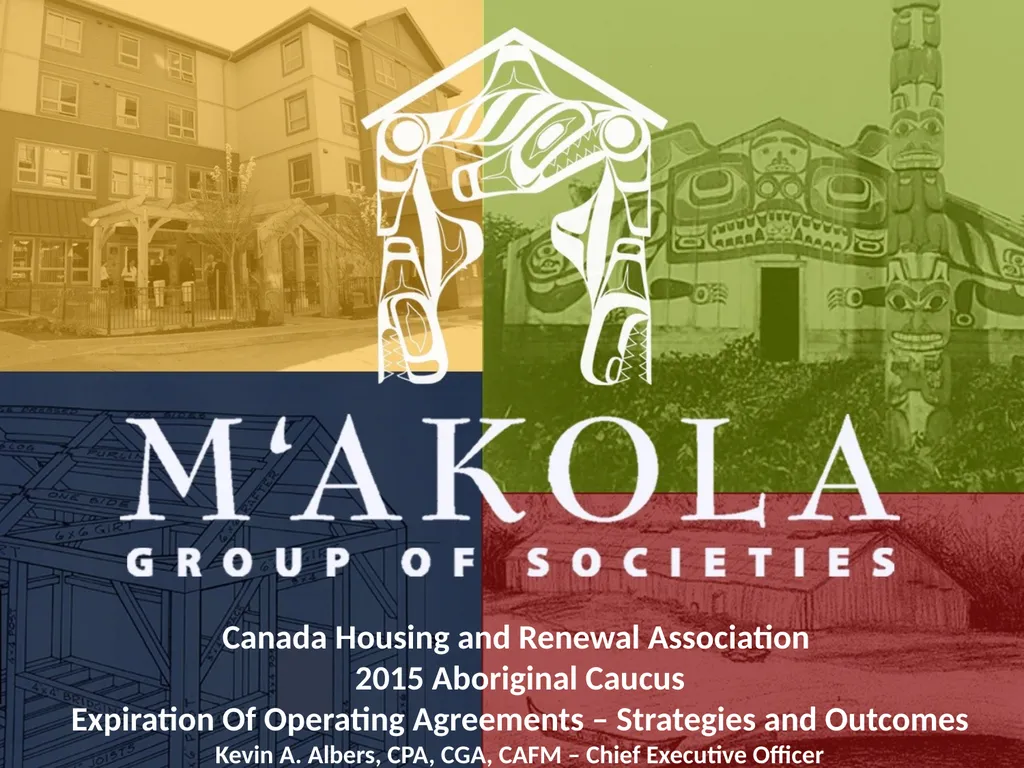
Author : calandra-battersby | Published Date : 2025-06-23
Description: Canada Housing and Renewal Association 2015 Aboriginal Caucus Expiration Of Operating Agreements Strategies and Outcomes Kevin A. Albers, CPA, CGA, CAFM Chief Executive Officer Outline About Makola EOA Scenario Challenges StrategyDownload Presentation The PPT/PDF document "" is the property of its rightful owner. Permission is granted to download and print the materials on this website for personal, non-commercial use only, and to display it on your personal computer provided you do not modify the materials and that you retain all copyright notices contained in the materials. By downloading content from our website, you accept the terms of this agreement.
Here is the link to download the presentation.
"Canada Housing and Renewal Association 2015"The content belongs to its owner. You may download and print it for personal use, without modification, and keep all copyright notices. By downloading, you agree to these terms.













